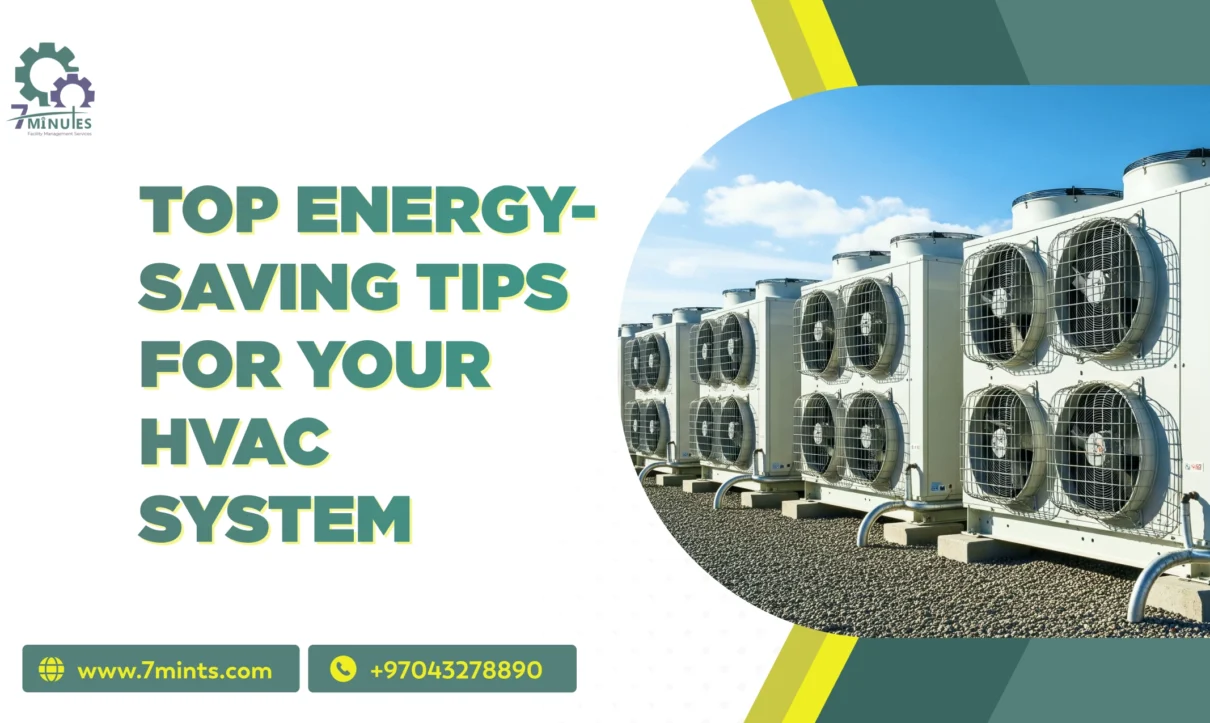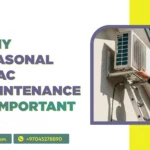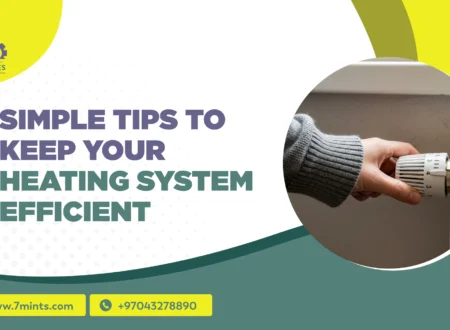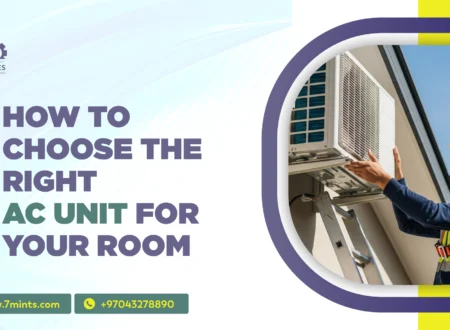Heating, ventilation, and air conditioning (HVAC) systems are essential for keeping comfort indoors all year long. Nothing less than an HVAC system unit will assure perfect indoor weather on a blazing summer day or on a chilly winter night. Though they also can be absorbers of a fair share of energy, there do exist some wise and nearly cost-free ways to cut their energy use.
In this blog, we will discuss top energy-saving tips for your HVAC system to help save costs on energy bills while improving the efficiency of your HVAC system and working towards building greener communities.
Top Energy-Saving Tips
Heating, ventilation, and air conditioning (HVAC) systems are essential for comfort, but they can also consume a large portion of your energy bill. Adopting top energy-saving tips is critical to reduce costs, enhance HVAC energy efficiency, and contribute to environmental sustainability. In this blog, we provide a systematic approach to implementing energy‑saving tips HVAC for both residential and commercial spaces.
1. Use a Programmable or Smart Thermostat
- Auto Adjusts Temperature: A programmable thermostat lets you define heating or cooling setpoints based on your daily schedule. So the HVAC unit will operate only when heating is needed, for instance, between the hours when you’re at home or awake. This leads to great wastage during unoccupied hours of potential energy savings in lowering the heating/cooling control. Time is saved, energy is saved, and that turns directly into more savings over time.
- Remote Control Features: Thanks to smart thermostats, you can also access your heating and cooling settings from your smartphone or tablet, allowing temperature adjustments from virtually anywhere. So, if you forgot to switch to a power-saving mode before leaving, put your cell phone in your pocket and make the change while on your way. This could be especially important if one has erratic work times since you are quite involved in your HVAC utilization so somewhere to prevent energy waste.
- Learns Your Preferences: Better smart thermostats can learn your daily schedule and home temperature preferences; then, based upon that information, they make adjustments for maximum comfort and efficiency. For instance, the thermostat might be lowering the temperature before bedtime without any manual input from the end user. These intelligent changes are basically saving energy with no effort, which is one of the most effective energy‑saving tips HVAC.
- Less Human Error: If you choose to set your thermostat manually, you might forget it one day, especially in a busy household. Simple programmable thermostats take away this free will. They keep your HVAC system running optimally and consistently, whether you think about it or not, thus cutting down on energy wasted from simple human error.
Explore More Services: GRC Supplier in Dubai | Civil Engineering Services
2. Schedule Regular Maintenance of HVAC
The regular maintenance work includes checking refrigerant levels, cleaning coils, and inspecting electrical connections. This routine helps keep the system in the best operating condition, making sure it is not overconsuming electrical energy. An HVAC system, if maintained properly, will deliver better efficiency in power consumption, all aimed at providing less comfort on the other side of the variances. Maintenance offers a foresight into leisure and the decrement of wear and tear.
- Avoids Pricey Repairs: Ignoring small problems with an HVAC system is often an invitation for its large-scale breakdown and, hence, a very high repair price. Regular maintenance enables early detection of arising problems, which makes timely repairs both affordable and suitable. Fixing simple problems such as a loose belt or clogged filter stops your system from expending overtime. This not only saves money but also reduces energy use while making sure everything works efficiently, which is a key top energy-saving tip.
- Good for Air Quality: Dust, pollen, and other allergens are removed by clean filters, which in turn improves indoor air quality. This is a major concern in homes with pets or family members with allergies. Good air quality keeps your home healthy while allowing the HVAC system to run more efficiently, further enhancing HVAC system energy saving.
3. Seal and Insulate Your Home
- End Air Leaks: Leaky doors and windows represent vents through which heated or cooled air may escape, thus wasting energy. Weather stripping or good-quality caulk sealing closes the openings and keeps the temperature steady indoors. There is much less air that the HVAC system can compensate for; it rarely runs and, so, does not consume much energy. Comfort and energy efficiency shall take you a long way, which is another top energy-saving tip.
- Should You Add Insulation: Insulation in the attic, walls, and floors acts as a thermal brake, keeping external air out and preventing indoor air from going out. Lesser pressure is thus laid on your HVAC system to keep in sync with temperature. With a good insulation system, your home gets cooler in summer and warmer in winter, reducing your energy costs throughout the year.
- Helps Reduce Utility Bills: Sealing and insulating together can make your HVAC system up to 20% more energy-efficient. Paying for this small upgrade offsets long-term energy costs and is considered one of the most affordable top energy-saving tips.
- Improves HVAC Efficiency: With a home that is fully insulated and sealed, the HVAC system works under optimal conditions. It does not have to work against outside elements or compensate for air leakage. Hence, it operates smoothly without stress or wear and tear, consuming less electricity and boosting HVAC energy efficiency.
4. Operate Ceiling Fans Properly
- Efficient Air Circulation: Ceiling fans distribute conditioned air throughout the rooms, minimizing reliance on the HVAC system. They increase air movement; rooms feel cool in summer and warm in winter, reducing energy demand and supporting HVAC system energy saving.
- Incorporate Seasonal Direction Change: Most ceiling fans have a switch to reverse blade direction. Counterclockwise in summer pushes cool air down, clockwise in winter pulls warm air up and spreads it evenly.
- Allows Thermostat Adjustment: Proper fan use lets you raise the thermostat a couple of degrees in summer or lower it in winter, cutting energy consumption by 3% or more.
- Improves Comfort: Fans eliminate hot or cold spots, letting the entire room reach the desired temperature efficiently, reducing frequent HVAC adjustments and making this another key energy‑saving tip HVAC. Check out our latest blog post on Why Seasonal HVAC Maintenance Is Important.
5. Upgrade to an Energy-Efficient HVAC System
- Reduces Energy Consumption: Replacing outdated systems with high SEER-rated units is one of the most impactful top energy-saving tips. Modern HVAC units consume less energy while maintaining comfort.
- Offers Advanced Features: Variable-speed fans, smart thermostats, and zoning allow HVAC units to operate exactly as needed, avoiding waste.
- Provides Long-Term Savings: Although initial costs are higher, energy bills decrease, and reduced repairs pay off over time.
- Increases Property Value: Energy-efficient HVAC systems enhance resale value and appeal to buyers looking for eco-friendly homes.
6. Set Temperatures Realistically
- Avoid Overcooling or Overheating: Extreme temperatures increase energy use. Ideal thermostat ranges are 24–26°C (75–78°F) in summer and 20–22°C (68–72°F) in winter. Small adjustments can save around 3% of your energy bill.
- Small Changes = Big Savings: Slightly adjusting thermostat settings, combined with all the above top energy-saving tips, ensures optimal HVAC system energy saving while maintaining comfort.
Conclusion
The HVAC system is essential for comfort, but with proper implementation of top energy-saving tips, including energy‑saving tips HVAC, maintenance, insulation, smart thermostats, and upgraded systems, you can cut energy bills, improve indoor air quality, and extend HVAC lifespan. Prioritizing HVAC energy efficiency and HVAC system energy saving strategies makes your home or office eco-friendly, cost-effective, and sustainable.
Hence, Contact us as these changes help in reducing energy bills, extending the more prominent life of the HVAC system, and improving indoor air quality. Adopting sometimes one energy tip here and sometimes a complete reengineering thereof will always bring you a step closer to making your home energy efficient and sustainable.










1 Comment
Comments are closed.